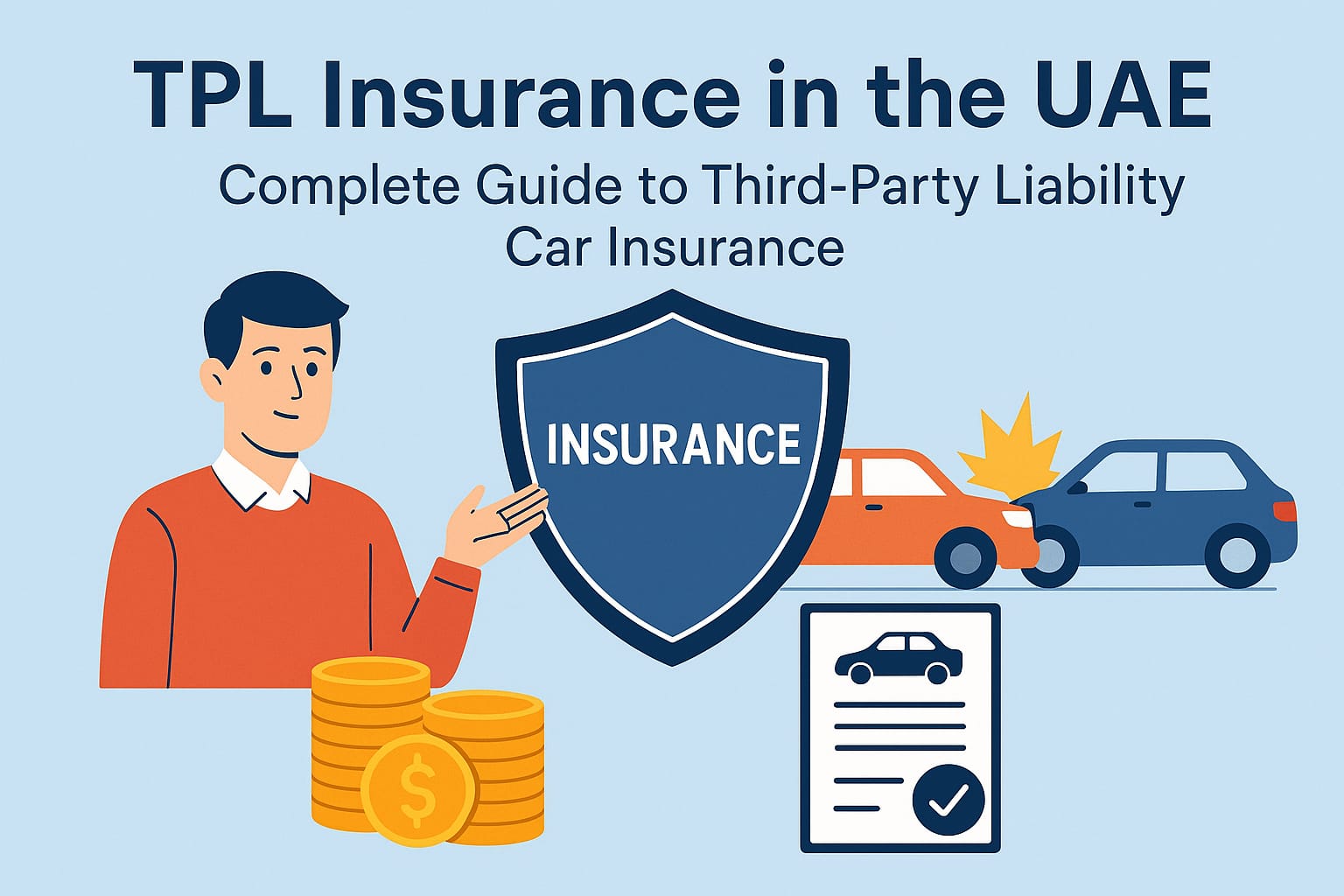Car insurance premiums can sometimes feel like a mystery, right? One person might pay a small amount while another sees a much higher number. You’re not alone if you’ve ever wondered what exactly goes into calculating these premiums.
In the UAE, car insurance premiums vary based on several key factors. Understanding these factors can help you make wiser decisions about getting low premium car insurance.
This article will explore the factors which determine car insurance premium and how each impacts your costs. Knowing this will not only help you compare car insurance premiums but also assist you in finding the premium car insurance you want.
What is a car insurance premium?
A car insurance premium is the cost you pay your insurance company to insure your vehicle. Based on your coverage terms, it provides financial protection against accidents, theft, and other potential damages. Several factors influence the cost of your premium, and understanding these can help you better manage your insurance costs.
Let’s examine the factors which determine car insurance premium and how each one affects your payment.
Factors which determine car insurance premium

1. Age of the driver
Your age is one of the most significant factors affecting your auto insurance premium. Younger drivers, especially the ones under 25, tend to pay more. Why? Statistics show they are involved in more accidents, which makes them a greater risk for insurance companies.
On the other hand, older and experienced drivers may benefit from lower rates as they are often seen as safer drivers.
2. Driving history
Your driving record is essential when calculating car insurance costs in the UAE. You’re in luck if you have a clean record with no accidents! You’re considered low-risk, which will help you get a lower car insurance rate. However, if you have been in accidents or received traffic violations, expect your automobile insurance premium to increase.
3. Type of vehicle
Not all cars are equal in the eyes of insurance companies. Luxury, sports, or high-performance cars often come with a higher auto insurance premium. This is because they are costlier to repair or replace and may be more likely to get into accidents.
4. Vehicle age and condition
An older car might seem like it would come with a lower premium, but that’s not always the case. The car’s condition is one of the factors which determine car insurance premium. Well-maintained older cars might have lower premiums, but if your car lacks safety features or is prone to breakdowns, expect to pay more.
Similarly, a vehicle with a larger engine size may incur a higher-than-usual premium cost.
5. Location
Where you live and even where you park your car play significant roles in determining your car insurance premium. Insurers evaluate the risk of your car being involved in accidents, theft, or vandalism based on your location.
6. Frequency of use
Frequent driving increases accident risk and impacts your premium. Daily commuters or business drivers often pay higher premiums than occasional drivers. High mileage adds wear and tear, so keeping kilometres low can help. Consider alternatives like carpooling, limiting non-essential trips, or using other transportation options.
7. Car insurance coverage type
The type of insurance coverage you choose is also among the factors which determine car insurance premium. Comprehensive insurance covers both your car and third-party liabilities and is more expensive than third-party-only insurance.
To know more differences, read Comprehensive vs third-party insurance.
8. Claims history
If you’ve made claims in the past, especially multiple claims, insurers will consider you a higher risk, and your premium will reflect this. Conversely, drivers with no claims history can often benefit from a no-claims discount, reducing their average car insurance premium.
9. Agency or Non-Agency Repairs
Repairs are an essential part of any comprehensive insurance plan. When it comes to repair choices, owners can opt for agency repairs, provided by the official dealer, or non-agency repairs, approved by the insurer.
Customers have the option to pay an additional fee to include agency repairs in their car insurance coverage. It’s important to check if agency repairs are already included in the policy before purchasing online car insurance in Dubai.
10. Safety features and anti-theft devices
Cars equipped with advanced security features and anti-theft systems can significantly lower your insurance premium. Features such as airbags, ABS, immobilisers, and alarms lessen the risk of accidents and theft, making your vehicle less risky to insure.
Final takeaway
Understanding the factors which determine car insurance premium can help you make overall decisions when choosing your coverage. From your age and driving history to where you live and how often you drive, each factor plays a role in shaping the premium you pay.
By keeping a clean driving record, selecting the right vehicle, and taking advantage of safety features, you can potentially lower your costs and find a plan that fits your needs. Awareness of these factors gives you more control, helping you secure the best car insurance deal in the UAE.
Frequently Asked Questions (FAQs)
What does the insurance premium depend on?
Your car insurance premium depends on factors such as your driving record, the car’s make and model, where you live, how often you drive, and the type of insurance coverage you select.
Can I lower my car insurance premium?
You can lower your premium by driving safely, choosing a car with safety features, raising your deductible, and parking in secure areas. Also, many insurance providers offer discounts for no-claims history.
Does the type of car affect my insurance premium?
Expensive or high-performance cars, like sports cars, tend to have more heightened insurance premiums due to their repair costs and the higher likelihood of theft or accidents. Economical, safe vehicles generally have lower premiums.
Can my job affect my car insurance premium?
Certain professions requiring frequent driving or high-risk activities, like delivery or taxi drivers, may lead to higher premiums. Conversely, office-based jobs with minimal driving can help lower your premium.
How often should I compare car insurance premiums?
It’s recommended to compare car insurance premiums at least annually or whenever there’s a significant change in your driving habits, vehicle, or coverage needs. Comparing regularly helps you find the best deal as your circumstances change.
What happens if I miss a payment on my car insurance premium?
Missing a payment could lead to penalties, suspension, or cancellation of your policy. Always make sure to stay on top of payments to avoid lapses in coverage, which could leave you unprotected in the event of an accident.






